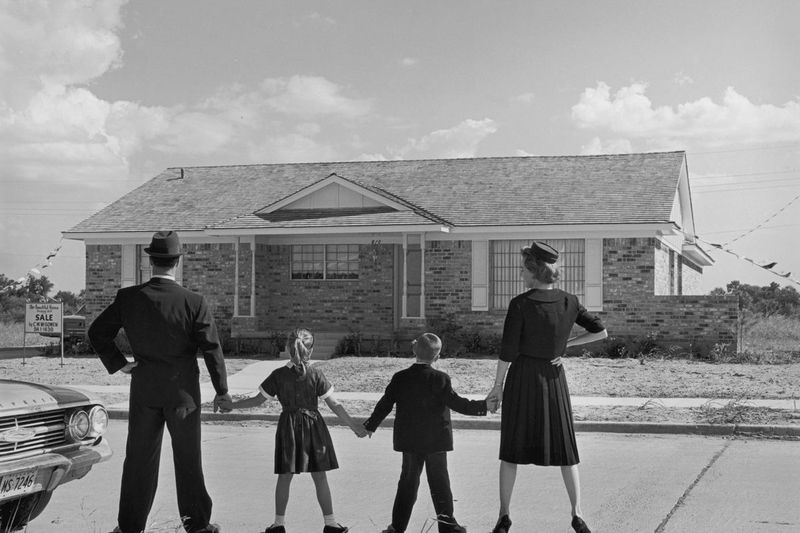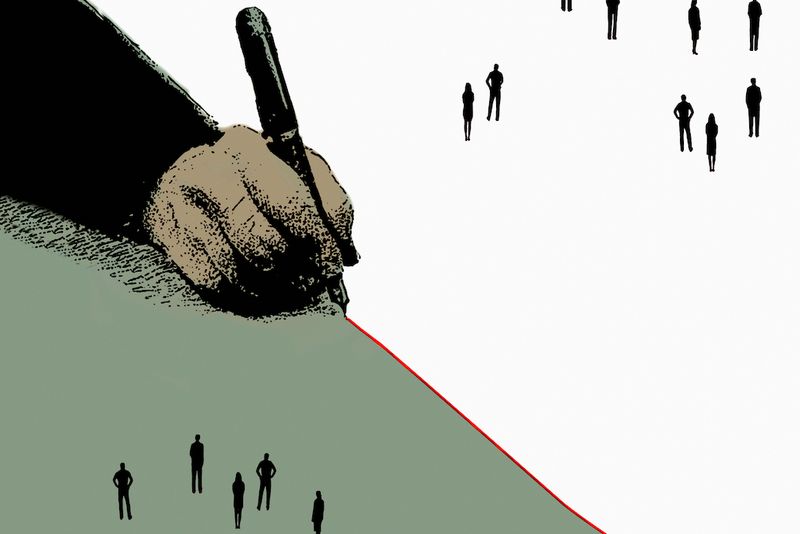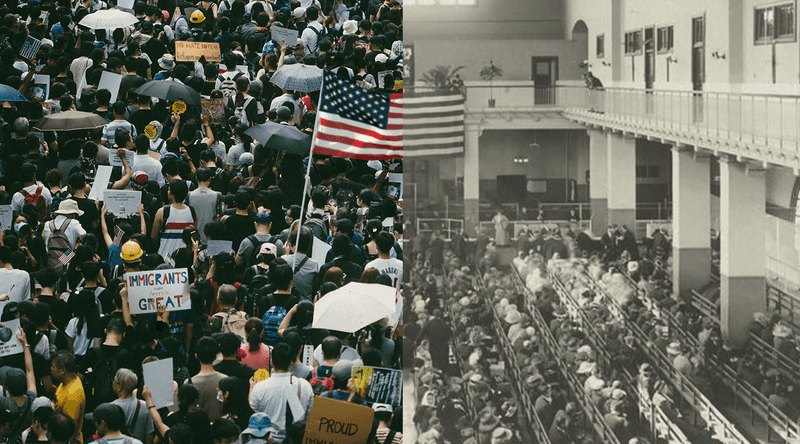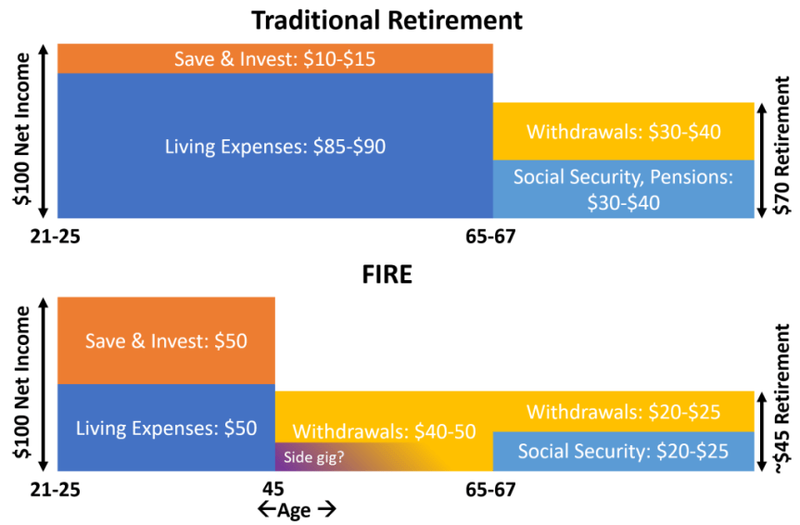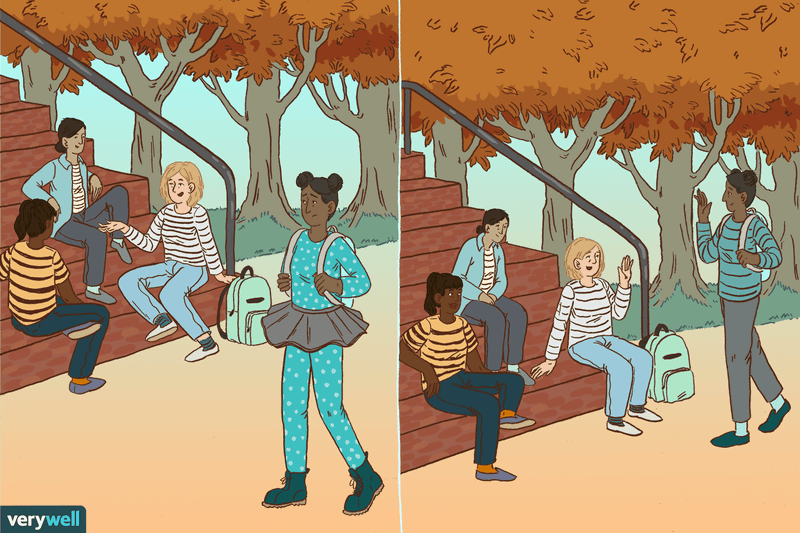The American Dream has been the backbone of hope for generations, promising that hard work leads to success and happiness.
What defined this dream decades ago looks completely different from what Americans chase today. Rising costs, changing values, and new technology have transformed how we think about success, family, and the good life.
Understanding these shifts helps us see where we’ve been and where we’re heading as a society.
1. Homeownership Dreams Have Shifted
Owning a house with a white picket fence once symbolized making it in America. Families saved for years to buy their slice of suburban paradise, complete with a two-car garage and manicured lawn.
Today’s reality tells a different story. Skyrocketing home prices and student loan debt have made homeownership feel impossible for many young adults. Instead of dreaming about mortgages, people now want financial freedom and flexibility to travel or change careers without being tied down.
2. Job Security Isn’t What It Used to Be
Previous generations expected to work for one company their entire career, climbing the corporate ladder slowly but surely. A gold watch at retirement and a guaranteed pension made this path feel secure and worthwhile.
Modern workers jump between jobs every few years, seeking better opportunities and higher pay. Remote work, freelancing, and side hustles have replaced the traditional 9-to-5 routine. People now value work-life balance and personal growth over company loyalty and long-term job security.
3. Family Structures Have Evolved
The nuclear family once defined the American Dream: married parents with clearly defined roles, kids, and a family dog. This “Leave It to Beaver” setup was considered the only path to happiness and respectability.
Today’s families come in all shapes and sizes. Single professionals, same-sex couples, chosen families, and people who consider their pets as children all represent valid ways to build a fulfilling life. Society now celebrates diverse family structures rather than enforcing one rigid model.
4. Social Mobility Faces New Challenges
“Pull yourself up by your bootstraps” used to be the rallying cry of American opportunity. People believed that anyone, regardless of background, could climb the social ladder through hard work and determination alone.
Wealth inequality and systemic barriers have made upward mobility much harder to achieve. Instead of focusing solely on climbing social classes, many Americans now redefine success as personal growth, mental health, and finding purpose in their daily lives and relationships.
5. College Degrees Don’t Guarantee Success
A college diploma once served as a golden ticket to middle-class life. Parents pushed their children toward four-year degrees, believing higher education would automatically lead to stable careers and financial security.
Student loan debt now burdens millions of graduates who struggle to find well-paying jobs. Trade schools, entrepreneurship, and digital skills often provide better financial returns than expensive college programs. Many successful people are choosing alternative paths to traditional higher education.
6. Immigration Stories Face New Realities
“Come to America and work hard to make it” inspired countless immigrants to pursue better lives. Stories of people arriving with nothing and building successful businesses fueled the American Dream narrative for generations.
Modern immigrants still carry hope and determination, but they face visa restrictions, racial inequality, and growing wealth gaps. The journey requires more resources and connections than before, yet immigrant communities continue to innovate and contribute to American society in remarkable ways.
7. Experiences Matter More Than Possessions
Owning the latest car, biggest television, and most appliances once measured success. Families competed to have the nicest things, filling their homes with material possessions that showed their social status.
Younger Americans now prioritize experiences over ownership. They’d rather spend money on travel, concerts, hobbies, and learning new skills than accumulate stuff. Minimalism and digital nomad lifestyles reflect this shift toward valuing memories and personal growth over material wealth.
8. Retirement Planning Has Transformed
Work for 40 years, get a gold watch, and retire at 65 with a pension. This straightforward retirement plan gave previous generations clear goals and financial security in their golden years.
The FIRE movement (Financial Independence, Retire Early) now attracts people who want to escape traditional work much sooner. Others can’t afford to retire at all, while some choose semi-retirement to pursue meaningful projects. Passive income streams and purpose-driven work have replaced the old retirement model.
9. Community Connections Have Gone Digital
Strong neighborhood ties, local church attendance, and town pride once defined American communities. People knew their neighbors, participated in local events, and built lifelong friendships within walking distance of their homes.
The internet has created global communities that transcend geography. People now find their tribes online, connecting with others who share their values, interests, and passions regardless of location. Virtual friendships and digital support networks often feel more meaningful than physical proximity.
10. Self-Expression Trumps Conformity
The American Dream once meant blending in and following established social norms. Success required conforming to accepted standards of behavior, appearance, and lifestyle choices that reflected mainstream American values.
Today’s dream celebrates authenticity and individual identity. People want to be seen and accepted for who they truly are, not who society expects them to be. Social media, diverse representation, and changing cultural attitudes have made self-expression a core part of personal fulfillment and success.
11. Work-Life Balance Becomes Priority
Long hours and overtime once earned respect and admiration. Working late showed dedication and commitment to success, while taking breaks or vacations seemed lazy or uncommitted to career advancement.
Mental health awareness has changed how Americans view work. The modern dream includes time for rest, hobbies, relationships, and personal well-being. People now seek jobs that offer flexibility, mental health support, and reasonable hours rather than just high salaries and prestigious titles.
12. Success Definitions Have Expanded
Job titles, salary figures, and house sizes once defined who had “made it” in America. Success was measured by external markers that others could easily see and compare.
Freedom, purpose, and impact now matter more than traditional status symbols. People measure success by their ability to live life on their own terms, make a positive difference, and have control over their time and choices. Personal fulfillment has become more valuable than social recognition.

